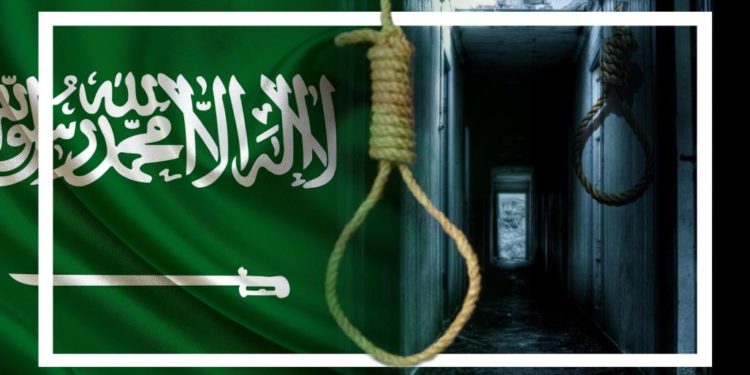
International human rights organization has questioned the recent decision of the Saudi regime to abolish the death penalty for people who committed minor crimes.
Reprieve said that there are concerns that prisoners of conscience and political backgrounds in the Saudi prisons may not benefit from this decision.
The organization expressed concerns about possible loopholes in Saudi law and asked whether it would be applied retroactively.
“These will be no more than empty words as long as the child defendants are awaiting execution,” she added.
The human rights organization Reprieve indicated that Crown Prince Mohammed bin Salman has repeatedly pledged to reduce the death penalty, but the Kingdom continues to execute people convicted of participating in the demonstrations even if they are still in school.
The governmental Human Rights Committee had said that anyone who had been sentenced to death after being convicted of crimes committed as a minor would be sentenced to no more than ten years’ imprisonment in a juvenile detention facility.
It is unclear when this decision to abolish the death penalty is expected against minors, which was announced two days after the abolition of the general punishment.
The English version of the Human Rights Commission statement indicated that flogging would be completely abolished, but the Arabic version said that this practice would be prohibited only in cases where the punishment was at the discretion of the judge, and not in crimes that dictate punishment under Islamic law.
The government media and the Ministry of Justice did not issue an official statement on the two decisions. The Human Rights Commission also did not say whether the step would apply to prisoners already sentenced to death.
For years, international human rights organizations have pressed the Kingdom to abolish these two penalties, among other demands to abolish other forms of corporal punishment, such as cutting the hands of a thief, or beheading in murders and terrorism.
The judicial system in the Kingdom applies three types of punishments: hidd, qisas, and ta’zir.
Hidd is a punishment mentioned in the Holy Qur’an, such as the whipping of the “adulterer”. As for retribution, it is punishing the perpetrator with what he did to the victim, such as murder by killing and wounding with a wound.
The two decisions will entail the adoption of several alternative penalties in addition to imprisonment and fine, and the introduction of fundamental amendments to the judicial system in the Kingdom.
The judiciary in the Kingdom applies the punishment of flogging to the perpetrators of a variety of crimes, including public sugar.
According to the document issued by the Supreme Court (the highest judicial authority in the Kingdom), the abolished punishment of flogging will be replaced by imprisonment or a fine or a combination of both, or any alternative punishment such as the obligation to provide social services and so on.